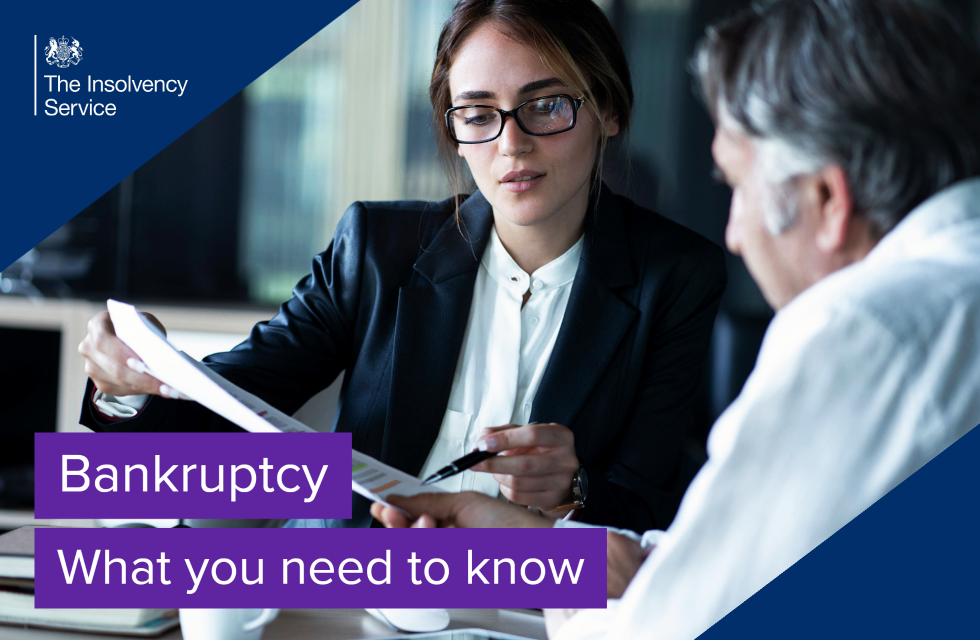The Insolvency Practitioner Ideas
The Insolvency Practitioner Ideas
Blog Article
Unknown Facts About Insolvency Practitioner
Table of ContentsAn Unbiased View of Insolvency PractitionerInsolvency Practitioner Can Be Fun For AnyoneIndicators on Insolvency Practitioner You Need To KnowThe Only Guide for Insolvency PractitionerThe 2-Minute Rule for Insolvency Practitioner6 Easy Facts About Insolvency Practitioner ShownThe Of Insolvency Practitioner
Insolvency is when liabilities are higher than the worth of the business, or when a debtor can not pay the financial obligations they owe. A firm can end up being financially troubled due to a variety of circumstances that lead to bad capital. When confronted with insolvency, an organization or person can get in touch with financial institutions directly and restructure debts to pay them off.Insolvency can bring about insolvency proceedings, in which legal action will certainly be taken versus the bankrupt person or entity, and possessions might be sold off to settle outstanding debts. Company owner might call financial institutions straight and restructure financial debts right into even more workable installments. Financial institutions are commonly responsive to this approach since they wish to be paid off and stay clear of losses, even if the settlement gets on a postponed timetable.
The Basic Principles Of Insolvency Practitioner
The proprietor produces a proposition outlining how the financial debt may be reorganized utilizing price reductions or various other plans for assistance. The proposal shows creditors just how business might generate enough money flow for lucrative procedures while paying its debts. Typically, a forgiven debt might be taken into consideration earnings by the Irs (IRS).

9 Easy Facts About Insolvency Practitioner Explained
Business might wind up paying large quantities of cash in problems and be overcome procedures. When operations discontinue, so does the firm's income. Lack of revenue causes accounts payable and creditors requesting cash owed to them. Some firms become bankrupt due to the fact that their goods or services don't develop to fit consumers' changing requirements.
Expenses surpass earnings and costs remain unpaid. Cash-flow insolvency happens when a company has the properties to cover their debts but they are in the wrong type, such as actual estate rather of fluid funds. Balance-sheet insolvency, on the other hand, indicates a lack of assets in any kind of form to cover financial debts.
The internal revenue service states that a person is financially troubled when the overall liabilities exceed complete properties. A insolvency, on the other hand, is a real court order that depicts just how an insolvent person or company will repay their like it creditors, or exactly how they will certainly offer their assets in order to make the payments.
Not known Facts About Insolvency Practitioner

Financial debt combination is when you integrate several financings into one new lending, often to accomplish much better terms. Insolvency is not the very same as insolvency, although a business that has become financially troubled might file for insolvency. Bankruptcy is the state of not having the ability to pay your responsibilities while insolvency is a legal procedure to release your financial debts.
Recognizing the aspects that can result in insolvency, such as overspending, can aid you protect against insolvency and its consequences.
The Ultimate Guide To Insolvency Practitioner
It is well understood that supervisors and officers of companies (and supervisors of limited liability companies) owe fiduciary duties to their companies and their investors (or members). These fiduciary obligations are specified by state statutes and, though there are variants from state to state, they usually include a duty of loyalty and a task of treatment.
The task of treatment calls for directors and police officers to work out diligence, to make enlightened choices, and to act in good find confidence to ensure that their activities are in the best rate of interest of the company. Past the scope of this discussion, some states allow these obligations to be limited either by so keeping in mind in the organizational papers or conforming with various other needs.
Insolvency Practitioner Fundamentals Explained
Many states define bankruptcy in two means( 1) when a company's obligations become higher than the sum of its assets or (2) when the firm comes to be unable to pay its debts as they become dueand embrace both interpretations (Insolvency Practitioner). The change in duties takes place due to the fact that when a company is bankrupt, there is no value in the business past that owed to the company's lenders to ensure that the equity owners no more have a financial stake in the company
Take care concerning giving shareholders favoritism at the expenditure of financial institutions (e.g., licensing and funding a reward or a stock redemption). Be mindful concerning favoritism between courses of investors. Clear up efforts to discover all the truths before taking a specific course of activity; supervisors must genuinely believe that my latest blog post any choices made remain in the finest interests of the corporation in its whole (i.e., choices will certainly be examined in knowledge in light of the effect of such activities on the company).
In any kind of insolvency or bankruptcy case, payments made to certain lenders at the cost of other creditors can be clawed back, specifically if there is some connection in between the company and the creditor. Take into consideration proposing at a yearly shareholder meeting (or any kind of various other conference of investors) a resolution verifying that all previous organization choices and actions taken by the supervisors and police officers of the firm were taken in good faith after a workout of practical care.
The Best Strategy To Use For Insolvency Practitioner
Completely reveal any type of personal or business connections with events beyond of purchases involving the company to avoid the appearance of a conflict of rate of interest. In examining potential fund elevating transactions or a sale of possessions of the distressed corporation, understand that these transactions might be inspected later due to any succeeding development of supervisors' fiduciary responsibilities to consist of financial institutions.
Report this page